As Kampala International University marks 25 years of transformative education, CEO East Africa Magazine sits down with Professor Muhammed Ngoma, the dynamic Vice Chancellor shaping its next chapter. In this exclusive interview, Prof. Ngoma reflects on his leadership journey, KIU’s bold vision for the future, and how the university is redefining private higher education in East Africa. From digital innovation to global expansion, he shares what it takes to lead a truly international institution into the next 25 years.
Can you describe your journey before becoming Vice Chancellor of KIU? What shaped your path in academia and leadership?
My name is Professor Mohammed Ngoma, the Vice-Chancellor of Kampala International University — the leading private university in the region and undoubtedly the biggest and most innovative institution of higher learning.
My journey to this position began in 1998, marking over 26 years of dedicated experience in academia. I started as a teaching assistant at Makerere University immediately after completing my bachelor’s degree. Along the way, I ventured beyond the lecture halls into the private sector, where I gained practical experience with various organisations. These roles equipped me with skills that have enriched my academic career.
Even as I explored several opportunities in the private sector, including opportunities at Nitil Jinja, Picfair, Coca-Cola, and Shell, I remained deeply connected to academia. Eventually, I fully recommitted to academic life and steadily progressed through the ranks — from teaching assistant to full professor.
Before joining Kampala International University, I held several leadership roles at Makerere University. I served as Head of the Department and Coordinator in the Faculty of Commerce and later became the founding Head of the Department of Business Administration, where I was tasked with establishing and growing the department. I was also privileged to serve as the Dean of the Faculty of Management, where I oversaw graduate training and later as Director of the Energy, Economics, and Resource Centre.
Beyond my academic roles, I have been actively involved in consultancy work for several organisations across both the public and private sectors. I have contributed to government agencies, business enterprises, and other institutions, providing expert advice and insights. Additionally, I have served as a trainer for various institutions and have been a youth leader and counsellor.
I have also been part of the Kampala International University family since June 24th, 2024, and I deeply appreciate the warm welcome I received.
I relish the unique challenges and fast-paced environment of the private sector. The demands are intense, and the pace is dynamic — but it is precisely this energy that excites me and drives me to contribute meaningfully to the growth and success of this great institution.
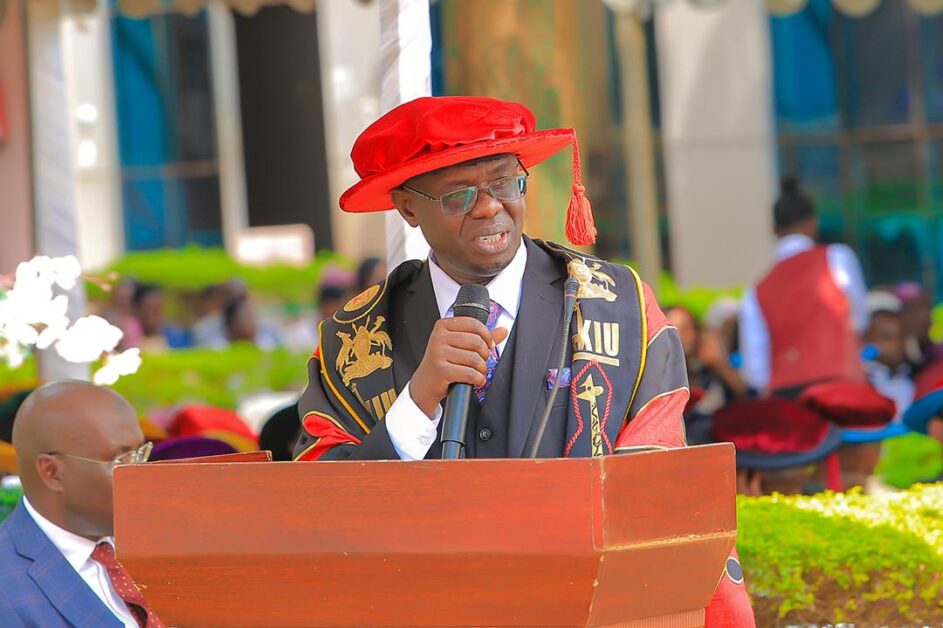
What drew you to Kampala International University, and what has kept you committed to its mission?
For a long time, I have been a friend to the Chairman of the Board of Trustees, Dr. Haji Hassan Basajjabalaba. Over the years, we have worked together on several projects, and throughout that time, he grew to appreciate my personality, the trust I built with him, and the way I approached our work. He often encouraged me to join him at Kampala International University (KIU), believing that together we could build and strengthen the institution.
However, at the time, I had existing commitments within a government institution. I was determined to fulfil my contract and, more importantly, to rise to the peak of my career before making any transitions. I did not want to leave my responsibilities midway, as I believed in seeing things through to completion.
Eventually, I reached that peak in my government career. When the position at KIU became vacant once again, the Chairman reached out to me, and this time, I accepted the opportunity. Beyond our friendship and previous collaborations, I was genuinely drawn to Kampala International University because of its incredible momentum.
I saw this as the perfect platform to embrace new challenges, contribute to the institution’s remarkable growth, and be part of a transformative journey. The role KIU plays in training and empowering the country’s workforce deeply resonated with me. I felt a calling to be part of that story — to help shape the future of this country through the university’s mission.
So, if you ask me what attracted me to Kampala International University, I would say two things: first, the remarkable pace at which the university is growing and the exciting challenges that come with that growth, and second, the longstanding relationship and trust I share with the Board of Trustees. Together, these factors made the decision not only natural but deeply inspiring.
What leadership principles have guided you in managing one of the most dynamic private universities in the region?
I firmly believe in servant leadership. Whenever I am in a leadership position, I view it as an opportunity to serve others — not for personal gain or self-glorification. My purpose in leadership is to serve the people I lead.
This principle has consistently guided me in my role at the university. I maintain an open-door policy; my office is always open to everyone, and I make it a point to engage with anyone who walks in. I strive to remain approachable and grounded, which helps me connect well with all members of the university community. Humility has been one of my core values in leadership. I believe that to work effectively with people, you must maintain a low profile and remain accessible.
Servant leadership, however, does not mean losing sight of goals and objectives. On the contrary, while I serve and prioritise people, I also keep a clear focus on targets. I am deeply committed to achieving our goals but equally committed to strengthening harmony and teamwork among the people I lead.
If I were to describe my leadership style, I would say I am high on both task orientation and people orientation. I am determined to see tasks accomplished, but I also place great importance on building a cohesive and collaborative environment. As a leader, I strive to balance both — driving results while serving and uniting the people under my care.
How do you balance being an academic, an administrator, and an institutional visionary?
Yes, it’s a big challenge. Usually, when you take up high-level administrative positions, you might likely lose touch with the academic side of your career — particularly in areas like research and publishing. When I talk about “bleeding academically,” I mean staying actively engaged in research and continuously publishing work.
What helps me maintain a balance is proper time management. I make it a point to wake up very early, and I dedicate those early morning hours to my personal reading. Before the clock strikes 8:30 AM, because by that time I’m already in the office, I ensure that I’ve done some meaningful reading.
It comes down to how you divide and prioritise your time. However, I must admit that I am not as active in writing and publishing as I was before taking on these administrative responsibilities. Back then, I was very productive; I would publish at least two to three papers every year. But in these administrative roles, you often find yourself deeply involved in addressing institutional challenges, attending several meetings, receiving visitors, and engaging with staff. Under such circumstances, it becomes quite difficult to maintain the same level of academic output.
That said, I always make it a point to stay connected to academia. Despite my busy administrative schedule, I continue to supervise students, and that alone keeps me grounded in academic life. I also aspire to continue teaching a few classes whenever possible to share knowledge and stay engaged. Without such efforts, administrators risk becoming disconnected from the academic world, losing track of developments in their fields — and that can cause one to fade away from academia altogether.
Who inspires you professionally or personally, and how have they influenced your leadership style?
When I think about the people who have inspired me professionally, one person who immediately comes to mind is Professor Wasswa Balunywa. I had the privilege of working closely with him when I was at the Faculty of Commerce at Makerere University. I truly admired his leadership style—he led with humility, and he had a genuine passion for mentoring others and ensuring that everyone around him grew and succeeded.
We shared many experiences, he mentored me, trained together, and even engaged in consultancy work side by side. Remarkably, we continue to collaborate on certain projects to this day. What stands out for me is his work ethic, he is deeply people-oriented, yet highly task-focused. He does not tolerate bureaucracy, and he steers clear of mediocrity.
When I joined Kampala International University (KIU), I was fortunate to encounter another inspiring leader, Dr. Haji Basaja Balaba. He is a man of exceptionally high standards. He has no tolerance for poor quality and is always driven to deliver top-tier results. Working with him felt like a continuation of the values I had embraced under Professor Balunywa—values of excellence, integrity, and high performance. It was reassuring to find that, even as I progressed in my career, I continued to work alongside people who upheld the same principles that I deeply respect.
Another influential figure in my journey has been a German professor, Professor Walter. He had an incredible eye for detail, and he taught me the importance of precision in everything I do. Whether it was reviewing a document or preparing correspondence, he insisted on going through it letter by letter, not just word by word, to ensure absolute perfection. He was also a task-oriented leader who valued high-quality output and disliked bureaucracy as much as Professor Balunywa. I had the opportunity to work with him for about four years before he returned to Germany, and his approach shaped my leadership style.
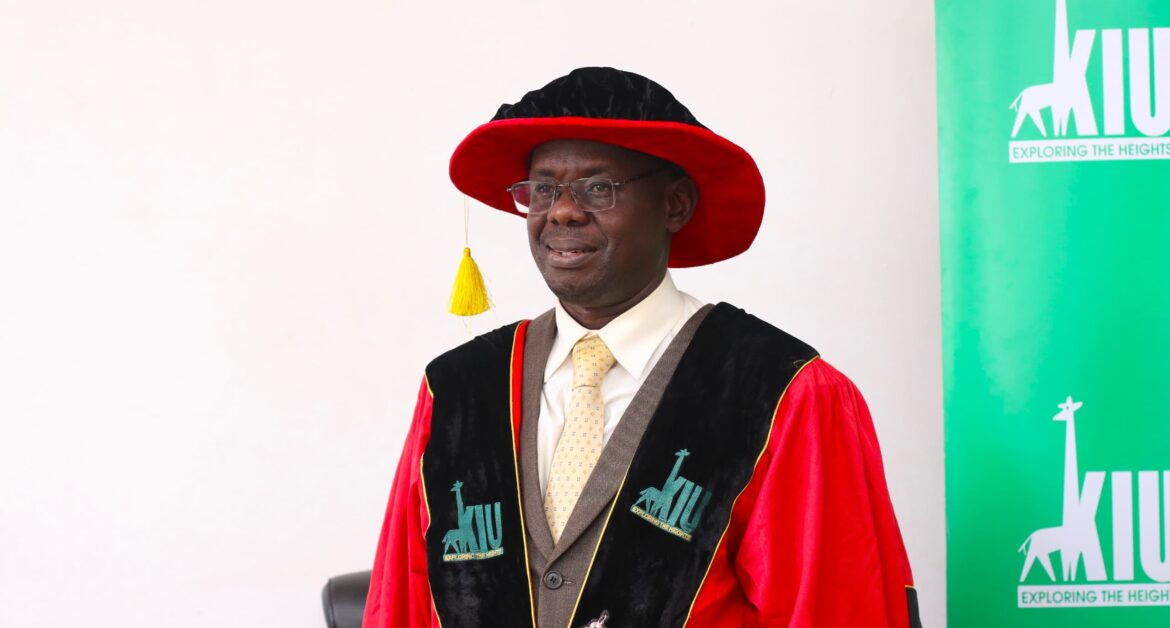
On a more personal note, I must mention my parents as well. My mother, in particular, was a no-nonsense figure in my life. She is still alive today, and I credit much of my discipline and resilience to her firm upbringing. She didn’t leave room for complacency; she was tough and determined, and she made sure we stayed focused. While my father loved smart, refined things and had a softer approach, my mother’s tough hand always kept us grounded. I often tell people that if it weren’t for my mother’s strict guidance, I wouldn’t be the person I am today.
What have been your most defining moments so far as Vice Chancellor of KIU?
When I decided to move from a government institution to a private one, I knew it would not be an easy choice. In the public sector, job security is almost guaranteed. However, in the private sector, you work on contract terms, and renewal depends entirely on your performance. There is less certainty. Many of my colleagues could not believe I was taking this path. But I told them there is a time for everything. I felt it was the right moment to embrace a new challenge and explore greater heights.
When I joined Kampala International University, I found an institution that was growing rapidly, with clear systems in place. Of course, no system is ever perfect, but the progress was impressive. One of my most defining moments as Vice-Chancellor was when we managed to achieve 100% attendance by both lecturers and students. Yes — every single day. It was not an easy accomplishment; it required tremendous effort. However, my colleagues had already laid a strong foundation, and I was determined to build on it. I invested additional energy to ensure that our educators were in class teaching and our students were consistently present and engaged.
I also came in at a critical time, just a few weeks before the university’s graduation ceremony. As a new Vice-Chancellor, I had the responsibility to oversee and ensure the success of this major event. Graduation is an important occasion where we not only celebrate the achievements of our students but also demonstrate accountability to parents and stakeholders. That very first month, I worked tirelessly to ensure that everything went smoothly. And I’m proud to say we delivered one of the most successful graduations in the university’s history. Our graduation booklet, for instance, had almost zero errors, a key achievement considering the challenges of previous years.
Another key milestone for me was the ability to build strong, effective teams within a very short period of time. I credit this success to my leadership style, my principles, and my collaborative approach to working with people. I firmly believe that by embracing teamwork and trust, you can achieve great results in any environment.
What does the 25th anniversary of Kampala International University mean to you personally and to the university as an institution?
To me personally, Kampala International University, having reached 25 years, is a great assurance. I am proud to say I joined an institution that has truly stood the test of time. Now, it is my responsibility to build on this strong foundation and take it even further beyond the achievements of the past quarter-century.
My goal during my tenure is to ensure that Kampala International University continues to be the leading private university in the region and to elevate it to become the top university not only in the region but also across the African continent.
These 25 years are a clear tale of the resilience and growth of this institution. They portray the confidence that stakeholders and the large community have in the university’s vision and direction. It is evident that Kampala International University is on the right path. Many institutions emerge and disappear over time, but an institution that has thrived for 25 years, consistently producing high-quality graduates and making significant contributions to the economy by employing a large number of people, demonstrates strength and effective leadership. This is a mark of confidence in the university’s future.
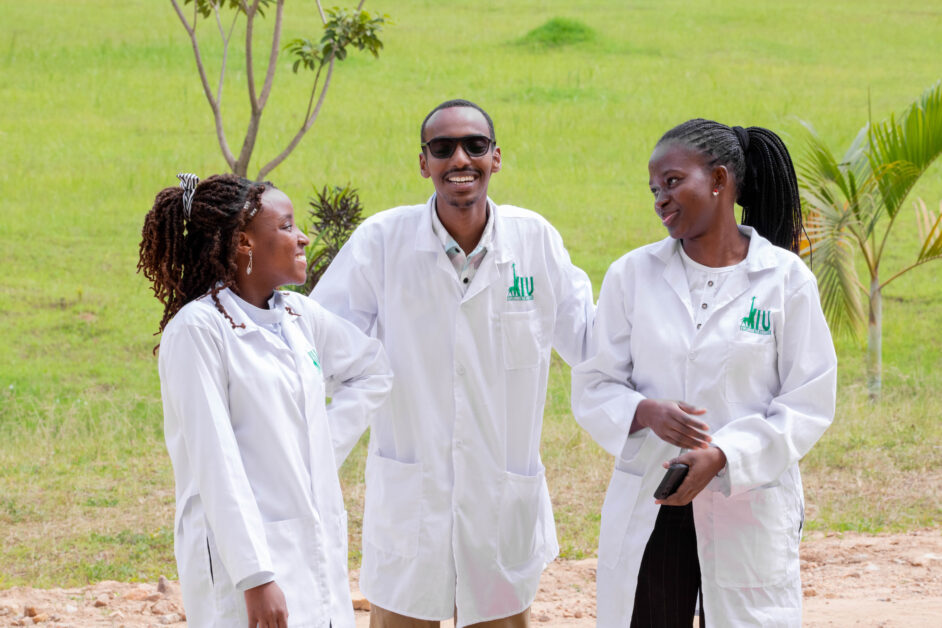
Looking back to KIU’s founding in 2001, what were the initial challenges and milestones that shaped its early development?
I may not speak about the situation in 2001 because, as I mentioned earlier, I did not start with the university at that time. However, having interacted with many individuals associated with the institution and having previously worked with Kampala International University (KIU) before becoming the Vice-Chancellor, I can speak with some authority. Before assuming this role, I served as an external examiner and was also part of the committee that worked to streamline credit transfer and training at this institution.
From my experience, the challenges that stand out prominently include, first and foremost, public confidence. For a long time, Ugandans did not have much faith in private universities. Whenever people thought of a university, their minds immediately went to public institutions — Makerere University, Kyambogo University, and later on, Mbarara University of Science and Technology and Gulu University.
Convincing the public that a private university could provide quality education comparable to that of public institutions was a significant hurdle. We had to work hard to demonstrate that private universities could operate effectively, deliver high standards of education, and produce graduates capable of excelling in their respective fields. This wasn’t a challenge unique to KIU alone; it was a shared struggle for all private universities in the country.
Another major challenge that I must highlight is funding. As you may be aware, the government does not extend financial support to private universities in Uganda. These institutions largely rely on tuition fees paid by students. Unfortunately, considering the economic realities of many Ugandans, the tuition collected often falls short of what is needed to sustain a university at the desired level of operation.
This persistent issue of underfunding remains a serious concern, not just for KIU but across all private higher education services. I have consistently appealed to the government to recognise that, regardless of the nature of ownership, all universities contribute to the country’s development. Whether a doctor is trained at KIU or Gulu University, they serve the country equally and are held to the same standards of practice when treating patients.
Therefore, the government must consider formulating policies or support mechanisms to assist private universities. If such support is not provided, many of these institutions will continue to struggle. We must remember that the success of private universities directly impacts the national agenda of human capital development.
In your view, what have been the university’s most defining achievements over the last 25 years?
One of the greatest achievements of Kampala International University has been the establishment of state-of-the-art infrastructure and equipment that has contributed significantly to producing highly skilled and employable graduates. This accomplishment is made possible through the support of the Board of Trustees and the Council, who have been strategic in setting up these facilities. A visit to our campuses, especially the Western campus, where we focus on STEM (Science, Technology, Engineering, and Mathematics) programs, will leave you mesmerised. The modern facilities we have in place show our commitment to providing exceptional education.
Additionally, the Board of Trustees and Council have deliberately invested in these world-class facilities to ensure that our graduates are not only well-trained but also competitive in the international job market. As a result, our graduates stand out for their competitiveness and quality, and this achievement marks a significant turning point for the university.
Another major milestone for Kampala International University is being ranked as the top private university in East Africa, as well as the third-best university overall in East Africa. Additionally, we ranked as the second-best university in Uganda. This recognition is evidence of the hard work, dedication, and excellence that the university consistently upholds. The rankings, conducted by international bodies, speak volumes as they are impartial and cannot be influenced. Being recognised globally reaffirms the credibility and quality of the education we offer here.
Some of our professors have been recognised as top researchers, both within Uganda and internationally, further highlighting the calibre of our academic staff and the level of research excellence at the university.
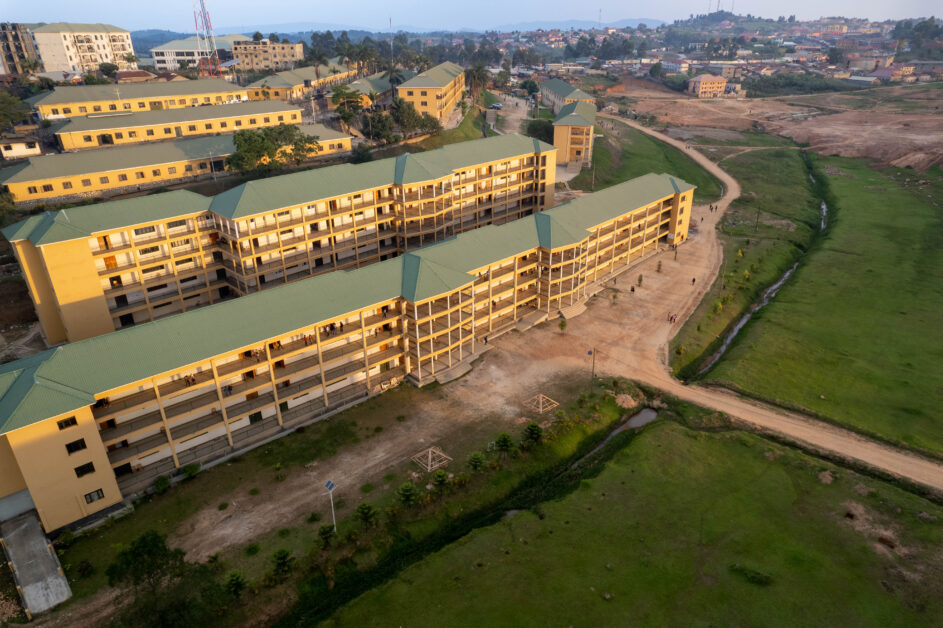
Recently, our Chairman of the Board of Trustees, Dr. Hajji Hassan Basajjabalaba, received international recognition when he was awarded the “Educationist of the Year” award in Cairo. Dr. Basajjabalaba, though known by some as a businessman, is deeply passionate about education and has worked tirelessly to ensure the highest standards of academic excellence at Kampala International University. His commitment to quality education and his intolerance for anything less than the best has earned him this well-deserved recognition as the African Educationist of the Year.
What are some of the key facts and figures that best define KIU today — in terms of student population, faculty, campuses, flagship programs, or regional impact?
Kampala International University (KIU) is proud to stand as a true international institution. With campuses across East Africa and plans for global expansion, KIU has made its mark on the international educational space.
Our main campus in Uganda is complemented by a thriving campus in Dar es Salaam, which has now grown to become a fully-fledged university in its own right named Kampala International University Tanzania. In addition, we have a branch in Kenya, and we are planning to extend our reach even further, with plans to open campuses in the United Kingdom and Dubai in the near future.
At KIU, we pride ourselves on our diverse and inclusive community. Our student population comprises individuals from 26 different countries, and our staff come from 16 different countries. Currently, we have a student population of approximately 43,000 across all our campuses, including our Western Campus. This large number of students translates to the quality of education we offer and the global recognition we have garnered.
KIU offers a wide range of academic programs to cater to the diverse needs of our students. From humanities to biological sciences, medicine, pharmacy, engineering, nursing, biomedical sciences, lab technology, computer science, business administration, law, education, and beyond, our programs are designed to equip students with the knowledge and skills needed to excel in the international job market.
In response to the rapid technological advancements and the growing demand for digital skills, we are also introducing new programs focused on cutting-edge fields such as Artificial Intelligence. This expansion into the digital realm is aimed at ensuring our students are prepared to meet the challenges of the future.

Kampala International University is committed to growing its influence beyond borders, offering quality education that prepares students for success in a rapidly changing world.
KIU is widely regarded as Uganda’s leading private university. What do you believe sets KIU apart in the East African higher education landscape?
One key aspect that sets Kampala University (KU) apart as a leading private institution in East Africa is its commitment to quality in every facet of our operations. At KU, we prioritise excellence across all areas, from academics to administration. Our Quality Assurance department plays a role in ensuring the highest standards in all domains, including academic performance, teaching methods, research output, publications, and even the administration of our day-to-day activities. Additionally, we extend our focus on quality to extracurricular activities, ensuring that all dimensions of university life meet the highest standards.
Another distinguishing feature of KU is our strong philanthropic ethos. While we are a private university and deeply committed to giving back to the community. Every year, KU awards between 500 to 700 bursaries to students from economically disadvantaged backgrounds. These bursaries are carefully allocated to those who demonstrate genuine financial need, ensuring that deserving students from underprivileged families have the opportunity to pursue higher education. Many people may find it surprising that a private university offers such a high number of bursaries, but it is essential to support our community and contribute to the development of the next generation of leaders. Our commitment to community outreach and service is just as important to us as the academic and administrative excellence we strive for.
How has KIU contributed to regional development in East Africa, particularly in the areas of education, healthcare, and research?
One key factor that international ranking bodies, such as Webometrics, use to assess universities is their research output. Kampala International University (KIU) has made significant research contributions in Uganda and globally. Our professors and researchers have been instrumental in extending knowledge through their research, leading to innovations. These innovations are currently being documented, and in the future, we plan to patent many of them.
For instance, last year, one of our Pharmacy students won the prestigious Global Innovation Award at an event in Singapore, recognising the outstanding work being done at KIU. In addition, one of our staff members received a Global Award in the field of Water, Sanitation, and Hygiene for a project she was leading. These are just a few examples of the many awards KIU has received.
When it comes to healthcare, KIU has played a key role in training a large number of medical professionals. We are proud to say that no other university in the region has trained as many medical doctors, nurses, and pharmacists as KIU. While some may perceive this as an issue, it is a major contribution. The patient-to-doctor ratio in Uganda is far below the international standard, and this shortage is why Uganda has not been able to officially export doctors. Simply put, we don’t have enough to spare. However, KIU has been filling this gap by producing a significant number of healthcare professionals who are now working across various hospitals in the region.
Our graduates are known for their professionalism, commitment, and sincerity. At KIU, we don’t just train students to be competent professionals; we also focus on building their confidence and character. We believe that a successful healthcare professional must possess not only the technical skills but also the confidence to perform and the strong character to act ethically and responsibly. We train our students to be competent, confident, and of excellent character, ensuring that they stand out not just for their technical abilities but also for their conduct in the workplace.
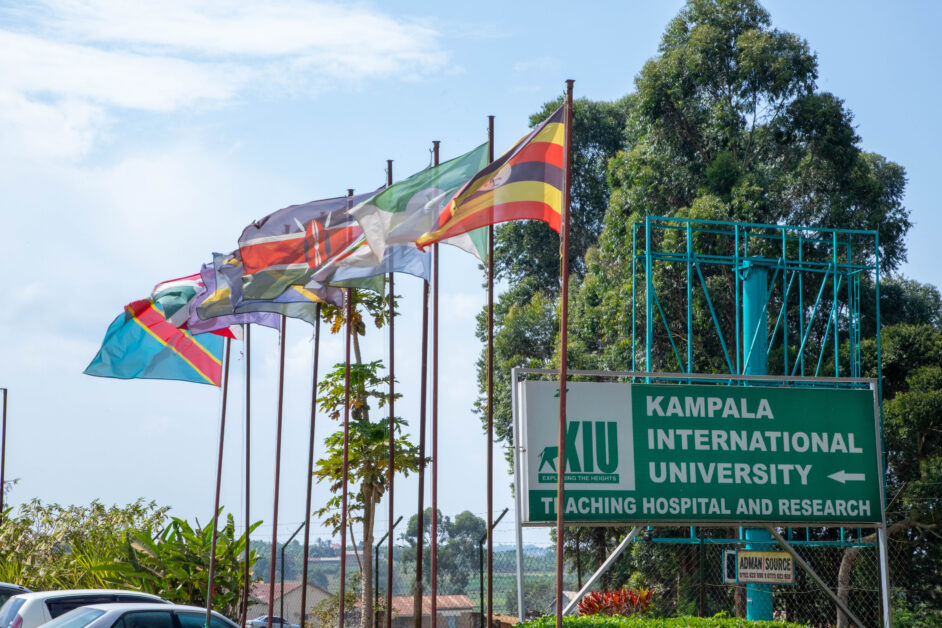
In what ways does KIU collaborate with regional bodies like the Inter-University Council for East Africa (IUCEA) and other institutions across Africa?
At Kampala International University (KIU), we are proud to be members of several international bodies that enhance our academic and research capabilities. We are members of the Inter-University Council for East Africa, a regional intergovernmental organisation established in 1980, the African Association of Universities, and the Commonwealth Universities.
Additionally, we are on the verge of joining the Association of Research Universities in Africa (ARUA), which brings together leading research institutions across the continent to strengthen collaboration and exchange of ideas in research and training. We have also recently submitted our application to become members of the African Research Institutions Platform (ARIP), a platform designed to unite universities excelling in research to share insights and strategies for improving research and training across Africa.
Our collaboration extends beyond regional borders. We work closely with universities across the world, including those in the U.S., the U.K., Europe and Asia. These collaborations have significantly contributed to enhancing our educational standards, research output, and overall academic environment.
Research and innovation are key pillars of modern universities. How is KIU enhancing its research capacity across disciplines, particularly in health, engineering, and technology?
At KIU, one of our core priorities is enhancing our research capacity, which has been a key focus since I joined. From the very beginning, I emphasised to my colleagues that, while we may have expertise, there’s always room for growth. Continuous learning is important for everyone, no matter their experience level. It was with this in mind that we initiated regular capacity-building workshops to ensure that our researchers not only refine their existing skills but also stay updated on new methodologies and approaches.
We strongly believe in the power of collaboration and ongoing learning, so we regularly remind one another of the latest trends in research. As new methodologies and techniques emerge, it’s crucial to stay ahead and adapt. Our training programs cover everything from research design and writing to publication strategies, ensuring that our researchers are equipped to succeed at every stage.
Additionally, we actively encourage our researchers to explore emerging disciplines and cutting-edge debates in their fields. For instance, we are currently encouraging staff in the School of Mathematics and Computing to delve into areas such as artificial intelligence and the digital economy. As technology evolves, so do the areas of research, and we want our scholars to be at the forefront of these developments.

In relation to building capacity, we also set a high standard for publication. We push our researchers to target top-tier journals, ensuring that their work is not only recognised but also contributes to the international academic community. This is essential for maintaining our visibility in the academic arena and ensuring that KIU continues to be recognised among the top universities.
Can you tell us more about flagship programs like Medicine, Law, Pharmacy, and Engineering and how they are shaping the future of Uganda and the region?
One of our flagship programs at KIU is the Bachelor’s Degree in Medicine, which we run at our Western Campus in Ishaka. When you visit this campus and see the work our medical students are doing, it’s truly remarkable. We continue to improve our curriculum, consistently benchmarking with the leading universities across the world. We have visited top medical schools in Europe, specifically in Germany and the Netherlands, and engaged with global health institutes. This ensures that our curriculum is not outdated and stays in line with the latest developments in the medical field.
Alongside our medical program, another flagship offering is the Bachelor of Law program. If you follow the trend, you’ll see that our law students have consistently excelled in moot court competitions, often emerging as winners. Our law program is strong and highly active, and we are proud of the outstanding achievements of our students. With a faculty of some of the best law professors from all over the world, our law school continues to be one of the best in the region.
In addition to law and medicine, our pharmacy and engineering programs are also key strengths. The pharmacy program, in particular, stands out as a flagship course. Our engineering programs are growing in prominence, with plans to expand into energy engineering in the future. As energy transitions and equitable energy markets become increasingly important, we aim to make a significant impact in this field, training professionals who will drive change and innovation in the region.
What role does the KIU Teaching Hospital play in combining education with real-world health service delivery?
The KIU Teaching Hospital stands as the largest teaching hospital in the region, with a 700-bed capacity, offering unparalleled opportunities for hands-on learning. This hospital serves as a critical platform where students can apply their theoretical knowledge in real-world medical settings. One major highlight initiative we host at the hospital is a day dedicated to providing free medical care to the public. This allows our students to interact with patients, practising their skills while serving the community.
In addition to our state-of-the-art teaching hospital, KIU also partners with government hospitals across the country, establishing teaching sites in all regions. These collaborations give our students access to a broad spectrum of medical environments—rural, urban, and everything in between. Our learners are rotated through these sites, gaining experience in different patient conditions and treatment scenarios that would otherwise be unavailable in a single location.
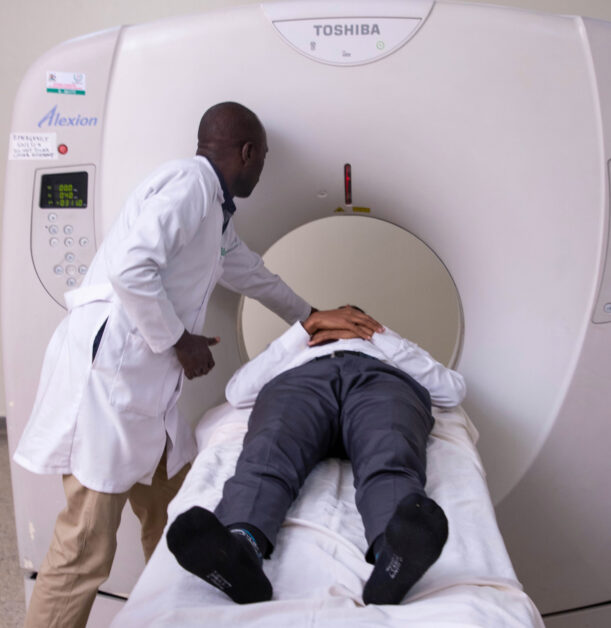
This exposure not only makes KIU students more adaptable but also gives them a significant advantage over their peers trained elsewhere. By experiencing a diverse range of medical situations, our students are well-prepared for any clinical setting, whether in urban hospitals or remote rural areas far from Kampala. This hands-on, comprehensive training ensures that when our students graduate, they are fully equipped to handle a wide variety of patients and conditions, preparing them for success no matter where they are posted to serve.
As you look to the next 25 years, what is your vision for KIU?
In the next five to ten years, I believe KIU should emerge as the top choice for students— the university of choice not just for Uganda but for the entire region. This goal is well within reach. We are intentional and deliberate in our approach, having established clear steps and mechanisms that will guide us toward this success. I have full trust and confidence that we will achieve this vision. The future is indeed bright for KIU.
What investments is KIU making in digital transformation, online learning, and future-ready academic programs?
We recognise the growing importance of online learning, and as part of our commitment, we have successfully integrated online learning options into our academic offerings. A large number of our students are currently engaged in online studies, taking full advantage of the flexibility and accessibility it provides.
To ensure the effectiveness of this transition, we have invested in training our staff to be fully equipped and ready to teach in the online environment. Our faculty members are well-prepared to deliver high-quality education remotely, adapting their teaching strategies to meet the needs of digital learners.
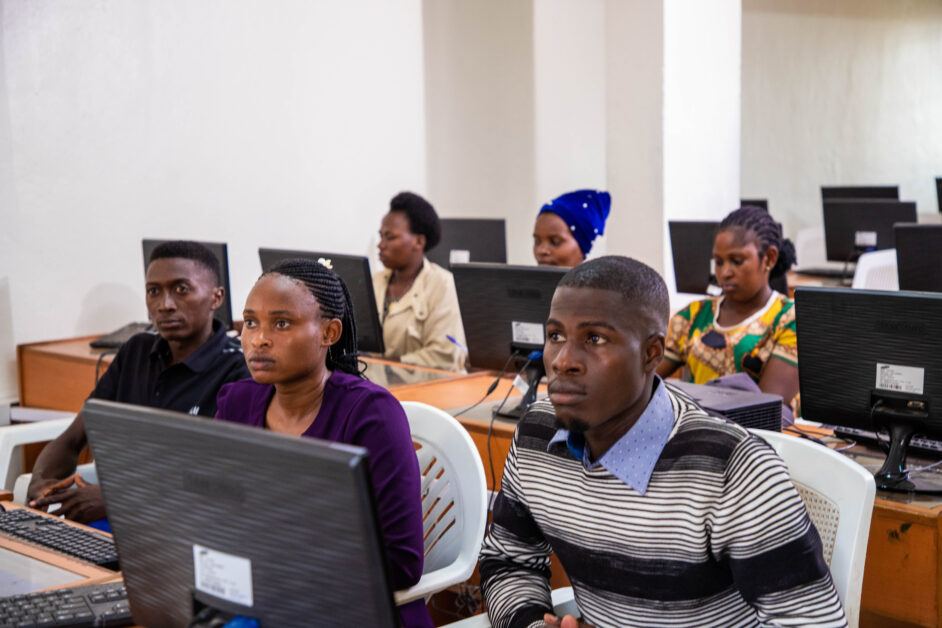
While we acknowledge the challenges associated with online learning on a global scale, KIU remains proactive in building the capacity of our staff to enhance their online teaching methods. We also prioritise the preparation of our students, helping them develop the skills and mindset needed to succeed in an online learning environment.
How is KIU preparing students to thrive in a globally competitive, tech-driven world?
As I mentioned earlier, our focus is not only on competence but also on confidence and character. Character, in particular, is an area that has led to the downfall of many graduates. You may have an exceptionally knowledgeable graduate, yet due to poor character, they become unemployable. Despite their skills, they may be fired within one week, one month, or even five months of starting a job simply because of character issues.
At our institution, we have made it a priority to instill strong character in our learners. However, as we transition into an increasingly technology-driven world, we understand the need to equip our students with additional skills outside of the classroom to ensure they remain competitive.
To achieve this, every Friday afternoon is designated as a “Skilling Afternoon.” This is a dedicated time when all students engage in hands-on learning. We provide training in areas such as software development, web design, computer manipulation, social media navigation, and using various online platforms and software. These skills are essential in the modern workplace and help our students stay ahead in a technology-driven world.
Additionally, we also aim to shift our students’ mindset towards entrepreneurship. Every Friday afternoon, we focus on instilling an entrepreneurial mindset and encouraging students to think creatively and innovatively. Our goal is to ensure that by the time our students graduate, they have acquired practical skills that will make them not only job-ready but also able to create their opportunities.
We are also working on a program that will ensure each student has something, no matter how small—to work on or run as a business by the time they graduate. This initiative will prevent them from starting from scratch and give them a head start in the real world.
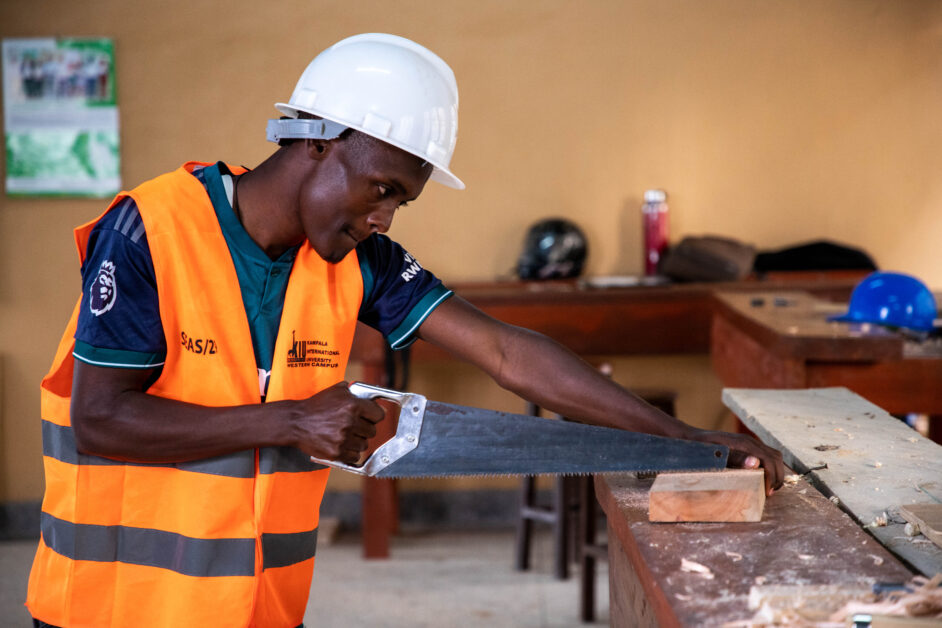
What’s even more remarkable is that all of this is provided at no extra cost to our students. These additional skills are offered as part of their learning experience, and we’re committed to ensuring that our students receive this valuable training to enhance their competitiveness in the job market.
KIU has produced thousands of alumni across sectors. How would you describe the impact of KIU graduates in Uganda, East Africa, and globally?
As I mentioned earlier, it’s hard to go anywhere without coming across a graduate from Kampala International University (KIU). Over the past 25 years, KIU has been at the forefront of shaping careers, producing a large number of graduates who now contribute significantly to every sector of this country’s economy.
If you look into the service sector, banking, telecommunications, insurance, tourism, or even various ministries, you’ll find KIU alumni making a difference. Our graduates are everywhere—from the manufacturing industry to textiles, agriculture, medicine, and construction, among others. The impact our alumni have had on this country is truly immeasurable. I can’t even imagine where we would be today if KIU had not produced such an incredible number of skilled professionals. Our alumni are serving as members of parliament, ministers, and women leaders who are actively shaping the future of this country.
To strengthen our ties with these extraordinary individuals, we are planning an alumni dinner, which we have named “KIU Come Back.” We hope this event will be a platform to reconnect with our alumni, fostering stronger relationships and collaborations, especially since many of them are now busy with their professional and personal commitments.
What’s more impressive is that KIU’s alumni network stretches far beyond Uganda. Our graduates are scattered across East Africa, West Africa, and South Africa—and even beyond the African continent. For instance, when we visited Europe last year, we were amazed to discover Dr. Chimboa, a leading oncologist based in the Netherlands, who completed his bachelor’s degree at KIU. His expertise is highly sought after across Europe, and his story exemplifies the kind of impact KIU graduates are making globally.
KIU alumni are doing outstanding work wherever they are. The challenge, however, lies in reaching out to all of them, as many are spread across the globe. However, we remain proud of their accomplishments and look forward to continuing to support their growth and success as they excel in their respective fields.
What support systems are in place for students at KIU in terms of mentorship, career services, and entrepreneurship?
At our institution, we have an Entrepreneurship Center dedicated to equipping our students with practical skills that go beyond the classroom. This centre has played an instrumental role in enhancing the development of our students, providing them with the tools to succeed in various industries. As part of our Friday afternoon skilling program, students have the opportunity to learn skills such as soap-making (both bath soap and liquid soap), candle-making, perfume production, and repairing electronic gadgets like phones, radios and televisions.
The Entrepreneurship Center has been a key resource in empowering our students with these additional skills, setting them up for a brighter future. Last week, the centre proposed an exciting initiative – a driving school specifically for our students. This idea sparked a lot of interest, as it offers another layer of practical training that will attract many students. Learning how to drive is an important skill that many don’t fully appreciate until they enter the workforce. Imagine being offered a company car but lacking the driving license to operate it – it’s a situation we want to prevent for our students.
Starting a driving school will require significant preparation, such as acquiring vehicles and hiring qualified instructors, which is an initiative that could be a game-changer. It will take time to put everything in place, but it’s something our Entrepreneurship Center is excited to pursue.
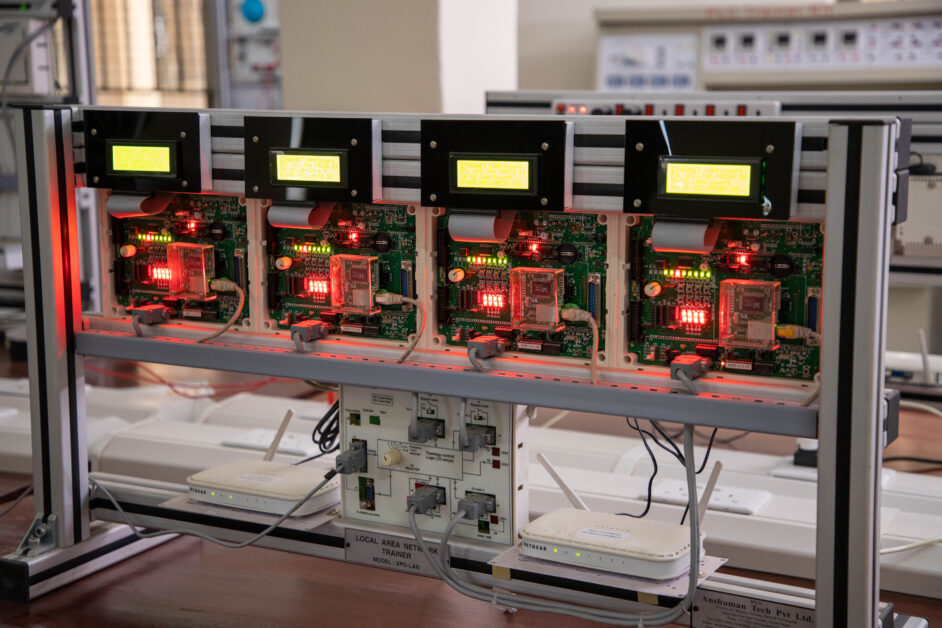
In addition to the Entrepreneurship Center, we also have a Career Guidance Center that plays a crucial role in advising students on the various career options available to them. We encourage our students to explore diverse career paths rather than focusing solely on a single route. We advocate for a career approach where students can embrace flexibility and multitask in their careers. This mindset helps them remain adaptable and open to opportunities outside their primary profession. Furthermore, the Career Guidance Center also offers mentorship programs, providing students with guidance and support as they navigate their career journeys.
How does the university remain connected to its alumni, and what role do they play in shaping the future of KIU?
We have developed a growing database of our alumni, which we continue to expand in order to better track their progress and maintain connections. One of the ways we engage with our alumni is by inviting them to speak with our current students. Beyond classroom training, we regularly organise public lectures and sessions where we invite influential personalities, including alumni, to share their insights with students.
For most of these lectures, we prioritise alumni speakers, though we also invite notable individuals from outside our alumni network. Recently, we had the privilege of hosting Honorable Betty Kamya Turwomwe, the Inspector General of Government (IGG), who spoke to our students about corruption in the country and the importance of building strong character for success in the workplace. Additionally, we welcomed the Honorable Deputy Prime Minister Hon. Rebbeca Alitwala Kadaga, who discussed the East African Community and its significance. We have also hosted a number of judges and other high-profile individuals who provide perspectives on various topics.
In addition to inviting alumni to speak, we keep them engaged by inviting them to participate in various activities held at the university. Through our alumni database, we stay in touch and encourage their participation in events. One exciting initiative we are working on is the inter-alumni games, where students will compete against alumni from different regions, such as Kampala, Gulu, the West, and the North. We believe these activities will help us maintain strong connections with our alumni and provide opportunities for continued engagement.
Sustainability and ESG are increasingly important. What steps has KIU taken to integrate sustainability and social responsibility into its operations and curriculum?
At Kampala International University (KIU), sustainability and environmental social goals are integral to our mission and values. As I mentioned earlier, we are deeply committed to giving back to the community through various initiatives in community service and outreach.
A clear example of this commitment was our swift response to the Kitezi landslide incident. KIU was among the very first, if not the only university, to immediately provide relief to the affected communities. Beyond offering essential supplies, we took it a step further by challenging our students to innovate solutions that could prevent future disasters. Our computing students at the Western Campus rose to the occasion and developed an application that predicts the likelihood of such disasters and alerts the relevant authorities. While the app is still under development, it stands as a move to our proactive approach to social responsibility and our belief in the power of technology to transform lives.
We have also embedded the principles of corporate social responsibility (CSR) deeply into our curriculum. We ensure our students understand the importance of giving back to their communities and living in harmony with the environment. These values are not only taught in theory but also practised through hands-on community projects and initiatives.
Furthering our commitment to sustainability, we are currently in the process of applying for a major environmental sustainability grant. If successful, this grant will allow us to make a significant impact, particularly in combating climate change. One of our key goals is to launch a nationwide tree-planting campaign, focusing on areas where our teaching sites and centres are located. Importantly, we will actively involve our students in this campaign, empowering them to be champions of environmental stewardship.
At KIU, we also promote responsible daily practices within our community. For instance, we have established marked disposal areas across our campuses to encourage proper waste management, particularly for non-recyclable materials like plastic bottles. Unlike in many institutions where littering is common, at KIU, you will hardly find bottles carelessly discarded. This is a result of our deliberate efforts to cultivate a culture of environmental responsibility.
Through these initiatives, whether through technological innovation, curriculum integration, community outreach, or daily sustainable practices, we are proud to contribute meaningfully to the global ESG (Environmental, Social, and Governance) agenda. We continue to encourage all members of the KIU community to embrace sustainable lifestyles and uphold social responsibility in their daily lives.
Can you speak to KIU’s efforts in promoting gender equity, especially in STEM programs and leadership?
Kampala International University (KIU) is widely recognised for its commitment to gender equity. In our bursary and scholarship programs, gender is a critical consideration. A significant number of these bursaries are awarded to the girl child, acknowledging the global reality that girls have historically faced greater disadvantages in accessing education. However, we are also mindful of emerging concerns regarding the boy child, who increasingly finds himself vulnerable as efforts intensify to empower the girl child.
At KIU, gender sensitivity is deeply integrated into all aspects of our operations — from admissions to leadership. We have a strong representation of women in senior positions, including deans, principals, heads of departments, and unit leaders. Key roles such as the University Secretary, Deputy University Secretary, Campus Administrator, Dean of Students, Director of Quality Assurance, and Head of Records are all held by women.
This inclusive approach shows our dedication not only to promoting gender equity in education but also to leadership. At KIU, we continue to create an environment where both men and women have equal opportunities to excel and lead.
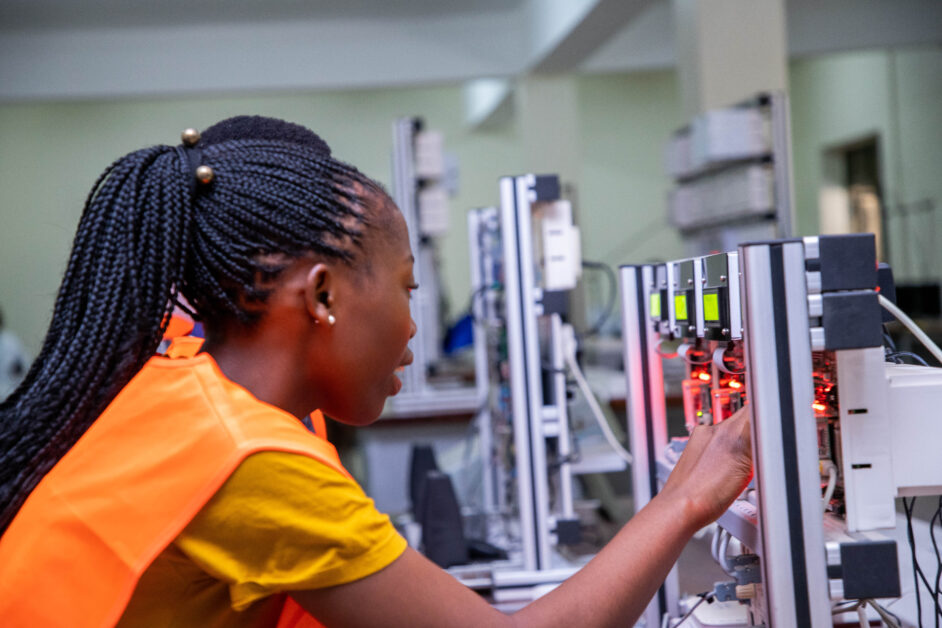
How does KIU balance academic excellence with affordability and accessibility for students from all walks of life?
Yes, our programs are affordable, but as I have emphasised, we never compromise on quality. While we have received some concerns, especially about our medical programs being costly, it’s important to understand that training a medical doctor requires a real investment in resources and expertise.
Our academic programs are designed to be affordable. However, within this affordability, we are deeply committed to maintaining academic excellence. We achieve this by engaging the best researchers and highly qualified lecturers to ensure our learners receive top-tier education. Our approach is a careful balance between excellence, affordability, and accessibility.
To enhance accessibility, we have established learning centres and embraced online learning platforms. Through online education, we have significantly expanded access to our programs. Additionally, by opening campuses in the western region, in Tanzania, and here at home, we have created more opportunities for learners across different areas. And this is just the beginning, as our vision is to extend our reach even further, bringing education closer to people across the country and making a meaningful impact in every region.
Also, when it comes to scholarships, we make sure to distribute them equitably across regions. We have designated slots for the North, West, East, and other parts of the country. This regional balance is part of our huge commitment to making our programs accessible and affordable for all while ensuring no one is left behind in the pursuit of quality education.
What message do you have for the students, staff, alumni, and partners as KIU celebrates 25 years?
As KIU celebrates 25 years of existence, I extend my appreciation to our staff, students, alumni, and partners. I urge you all to continue being exemplary ambassadors of KIU. Uphold the image and raise the flag of KIU high, for as students and alumni, you are the face of our institution in the world.
To our valued partners, both development and academic, and to all institutions we proudly collaborate with, we reaffirm our commitment to continue working together. Together, we will strive to improve the quality of education in this country, contribute meaningfully to national growth and development, and expand the size and strength of our economy.
As we celebrate this significant 25-year milestone, we remain dedicated to delivering quality services. We remain committed to nurturing and developing the human capital that is so vital for the progress of our country.
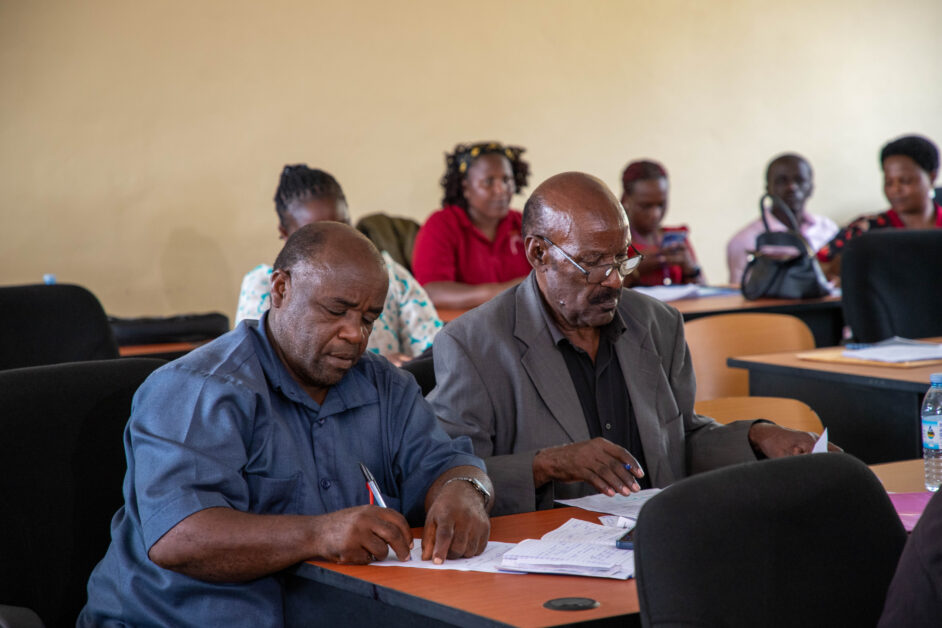
If you could describe the next 25 years of KIU, what would it be?
Looking ahead to the next 50 years—25 years beyond our current 25-year milestone, I envision Kampala International University (KIU) as a truly international institution. I see a university that is not only highly digital but also omnipresent. KIU will expand its footprint far beyond East Africa by establishing campuses and partnerships across the entire African continent and even beyond, reaching Asia, Europe, the United Kingdom, and other parts of the world.
Our motto, “Exploring the Heights,” will be more than just words; it will display our actual journey as a university. KIU will rise to great heights, and by that time, I believe the lines between private and public universities will blur. KIU will emerge as the leading university in Africa, earning the title of the “Harvard of Africa,” if I may use that expression.
This vision is not merely a dream but an achievable goal. As long as we maintain our zeal and commitment and continue to receive the support of our various stakeholders, I am confident we will reach this vision. KIU will become the university of choice—a preferred destination for anyone seeking quality higher education, both locally and internationally.
If I were to describe the next 25 years of KIU, I would say: It is a future defined by innovation, excellence, and impact. We envision KIU as a leading centre of academic excellence, a hub for research and innovation, and a transformative force in shaping the future of education and development in Uganda and beyond. The next 25 years will be about breaking new ground, empowering future generations, and leaving a mark on society.
KIU has made notable strides in online learning, but you’ve described your ambitions in this space as just getting started. Can you walk us through the university’s long-term vision for online education and how you plan to position KIU as a regional leader in this space?
Currently, our online student enrollment stands at approximately 700 to 800 students. While this number is lower than our on-campus attendance, this is understandable, as online learning is still a relatively new venture for us. However, our ambitions are high.
We are actively working to scale up our online education programs. One strategy includes learning from established institutions. We are in the process of signing a Memorandum of Understanding (MoU) with the University of South Africa (UNISA), which is recognised as one of the leading universities in the world for online education and boasts some of the largest online learning programs globally.
Through this collaboration, we aim to leverage their expertise and best practices to enhance our online learning capabilities. We strive for KIU to become the leading university in East Africa for online education, particularly catering to professionals who need to balance work, family commitments, and further education.
There is a growing population of individuals eager to upgrade their qualifications but constrained by time and location. By offering flexible and accessible online programs, we can meet their needs and significantly expand our reach.
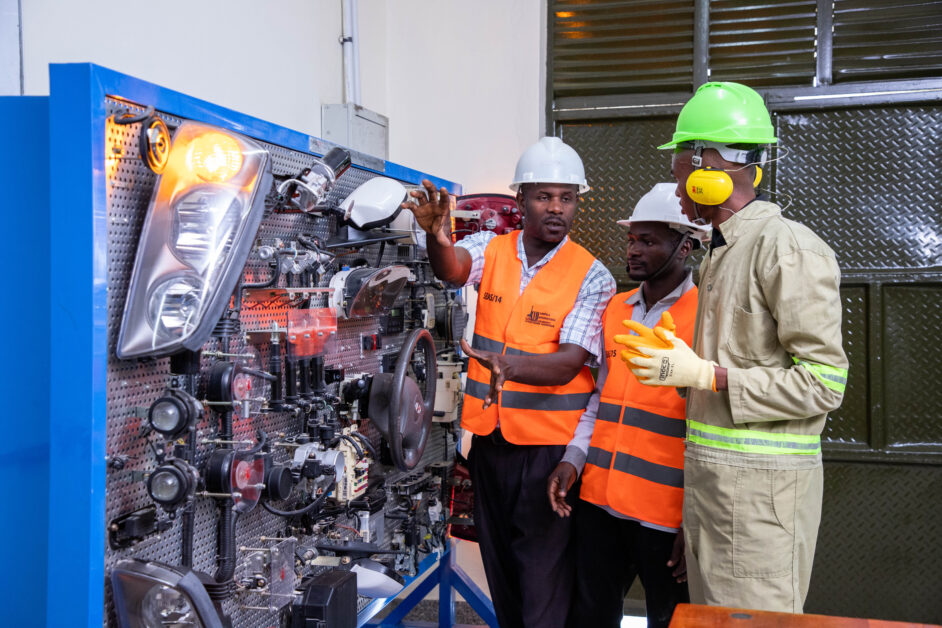
Of course, challenges remain. However, with our focus, strategic partnerships, and commitment, we are confident that KIU’s online learning programs will thrive and support our growth strategy.


 Airtel Uganda Introduces Africa’s First AI-Powered Spam Alert Service to Combat Digital Fraud
Airtel Uganda Introduces Africa’s First AI-Powered Spam Alert Service to Combat Digital Fraud